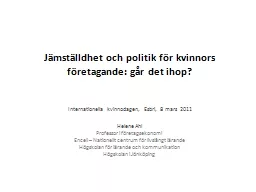PPT-Introduction for New AP Language Students
Author : giovanna-bartolotta | Published Date : 2018-02-04
The Argument Essay Sample Prompts For centuries prominent thinkers have pondered the relationship between ownership and the development of self identity ultimately
Presentation Embed Code
Download Presentation
Download Presentation The PPT/PDF document "Introduction for New AP Language Student..." is the property of its rightful owner. Permission is granted to download and print the materials on this website for personal, non-commercial use only, and to display it on your personal computer provided you do not modify the materials and that you retain all copyright notices contained in the materials. By downloading content from our website, you accept the terms of this agreement.
Introduction for New AP Language Students: Transcript
Download Rules Of Document
"Introduction for New AP Language Students"The content belongs to its owner. You may download and print it for personal use, without modification, and keep all copyright notices. By downloading, you agree to these terms.
Related Documents














